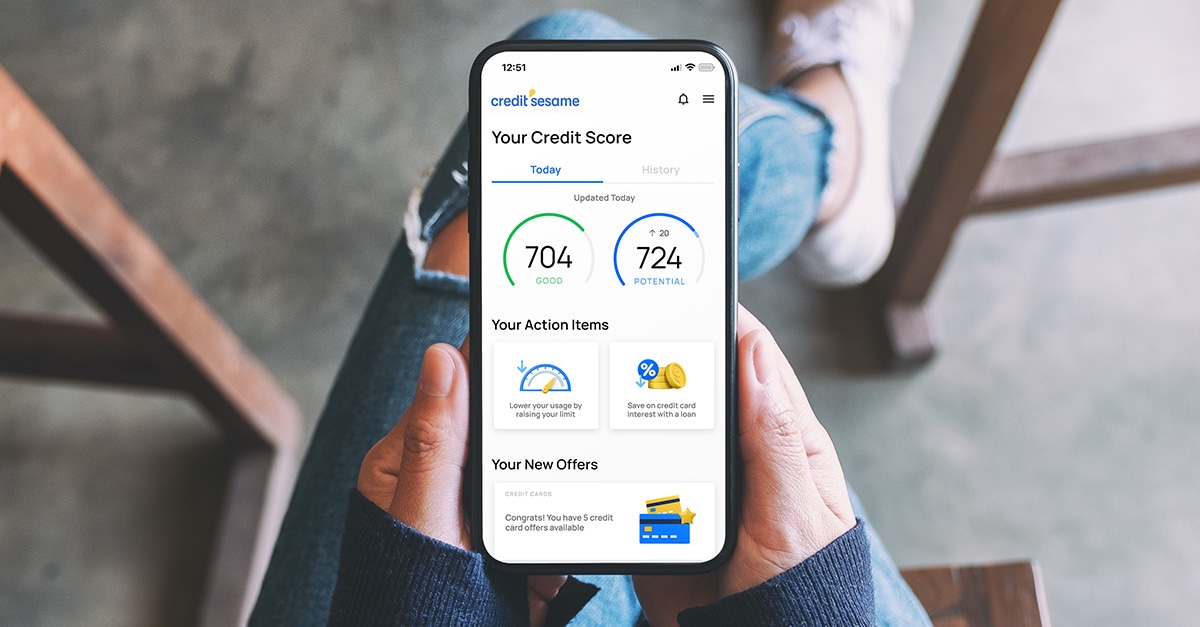Credit Sesame discusses why credit building is more important than ever as consumers navigate the economy, inflation and interest rates in 2023.
In 2022, individuals faced new financial challenges as the global economy continued to recover from the pandemic. Inflation and interest rates rose, making credit building an even more crucial tool for achieving financial stability.
Inflation and interest rates were major drivers of the global economy in 2022. Supply chain disruptions and higher commodity prices led to a rise in inflation, resulting in higher prices across many industries. As a result, it was critical for individuals to manage their credit and spending to avoid falling into debt.
Moreover, interest rates increased as a response to inflationary pressures and the overall state of the economy. Higher interest rates made borrowing money more expensive and increased the cost of carrying debt.
What about 2023?
Why credit building is more important than ever
In 2023, credit building is even more important. Here are some reasons why:
- Higher interest rates. Interest rates remain high in 2023. This makes it more expensive to borrow money. Individuals with good credit scores are better positioned to secure loans and credit cards with lower interest rates, saving them money in the long run.
- Inflation. Although trending down, inflation is also still high in 2023 and a key factor that affects the economy and personal finance. When prices are high, it can be challenging to maintain a budget and manage expenses. Individuals with good credit scores are better positioned to access credit when needed and manage their finances in the face of rising prices.
- Economic uncertainty. Although it looks like it is improving, the economy is subject to fluctuations and uncertainty. Since the pandemic it has been particularly unpredictable. Individuals with good credit scores are better positioned to weather financial storms and navigate economic uncertainty with confidence.
- Access to credit. With lenders tightening their lending standards, a credit crunch may already be underway in 2023. This makes access to credit more challenging. Those with good credit scores are more likely to qualify for loans and credit cards, giving them greater flexibility and financial freedom.
How can individuals build and maintain good credit in the face of these challenges? Here are some tips.
- Make payments on-time every time. One of the most critical factors determining your credit score is your payment history. Make sure to pay your bills on time, every time, to demonstrate your creditworthiness.
- Keep balances low. High credit card balances can hurt your credit score and make it challenging to pay off debt. Keep balances low and aim to pay off credit cards in full each month.
- Use credit wisely. Avoid opening too many credit accounts at once and use credit for necessary expenses only. Try to keep your credit utilization rate below 30%. For example, if your credit limit is $1,000, spend under $300 on your credit card.
- Monitor your credit report. Check your credit report regularly to ensure accuracy. Dispute any errors promptly.
- Consider a credit building account. If you are starting to build credit, a credit building account can be a good option.
Credit building has always been an essential aspect of personal finance, but it became even more critical in 2022 due to inflation and rising interest rates. The economic uncertainties of 2023 mean credit building remains an essential component of responsible personal finance management.
If you enjoyed Why credit building just got more important you may like,
- Is the U.S. headed for an economic Goldilocks zone?
- How the poor vs. rich were affected by the economy in 2022
Disclaimer: The article and information provided here is for informational purposes only and is not intended as a substitute for professional advice.






















